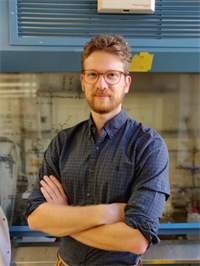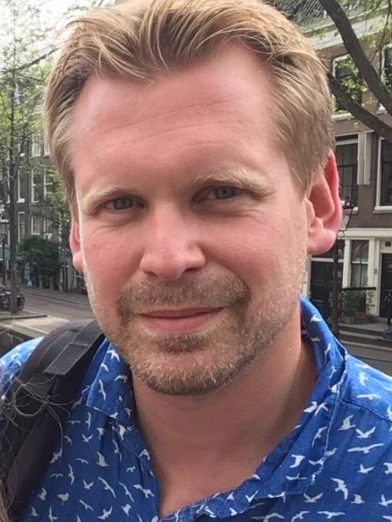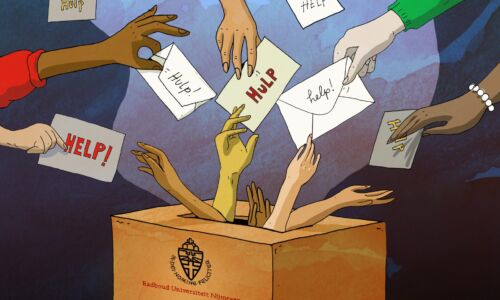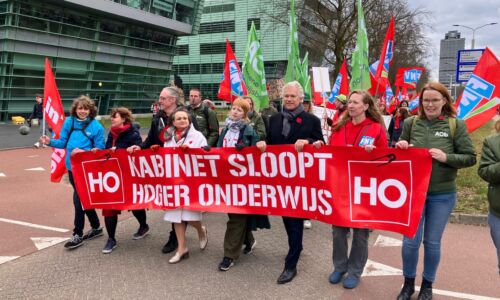Prestigious European grant for six young researchers from Nijmegen
-
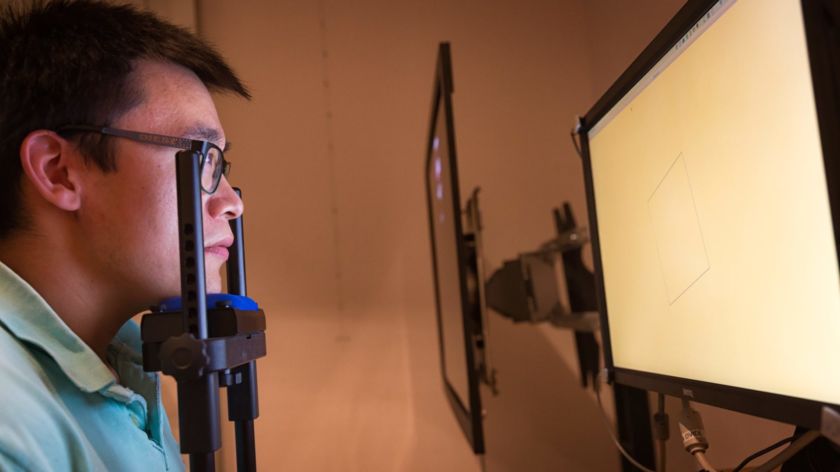 Research into eye movement at the Donders Institute. Photo: Dick van Aalst
Research into eye movement at the Donders Institute. Photo: Dick van Aalst
Six scientists from Radboud university, Radboudumc and the Max Planck Institute have received a Starting Grant from the European Research Council (ERC). They will be doing research into communication, the brain, RNA, and cancer, among other things.
The ERC Starting Grant is a prestigious grant from the European Union, worth 1.5 million euros on average. It is intended for researchers who finished their PhD between two and seven years ago; it enables them to form their own research group at a European research institute. Less than 10 percent of the over 4000 submissions were accepted; 44 of those grants will be going to the Netherlands.
Cookbook
Of those 44 grants, six are for researchers from Nijmegen. The lucky few from Radboud University are Tim Kietzmann and Willem Velema. Kietzmann (Donders Institute) will be looking into how our understanding of the world around us influences our perception of it. For example, if you know the meaning of a certain object, such as a vase, it could be much easier to recognise that object.
Velema, who is a chemist, wants to develop new cellular tools that can be used to study RNA more closely. RNA, DNA’s lesser-known sibling, is a messenger molecule that plays an important part in making proteins for various cell processes. If you imagine those proteins as dishes to be prepared, then DNA would be the cookbook and RNA would be the list of groceries. However, a lot of functions of RNA are still unknown; Velema hopes to uncover them. In the long term, new insights in this area could lead to new medicines, among other things.
ADHD
Another Donders-laureate is Radboudumc professor Rogier Kievit. He wants to know more about so-called cognitive variability – how changeable your cognitive abilities are, dependent on stress or exhaustion, for instance. Especially children with ADHD are often troubled by this. But for them, good and bad days can have major consequences when they’re being tested on their cognitive abilities, as well as on the level of education they are sorted into.
The second Radboudumc-laureate is Geert Litjens. He wants to employ artificial intelligence to better recognise cancer in microscope images. By doing this, he hopes to not only improve the quality of diagnoses, but that of treatment methods as well.
Hand gestures
The Max Planck Institute also has two grant winners in its ranks. Hans Rutger Bosker will receive the European subsidy for research into people’s use of gestures in their communication. When we talk to someone, we often use all kinds of subconscious hand gestures to support our story. Bosker will be researching how important the timing of those gestures is for the comprehension of the message. Insights from the research could be used to help improve digital avatars, among other things. Finally, Bosker’s colleague Andrea Ravignani is trying to ascertain how language developed as humanity evolved, and how much this may have coincided with musicality.
